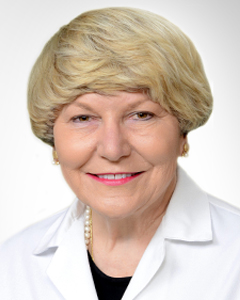Personal Prescriptions: Clinical trial explores new targets for treating advanced breast cancer
Breast cancer is the most common cancer affecting women in the United States and worldwide. When diagnosed early, it has more than a 90% cure rate. Yet, even when breast cancer spreads outside the breast and becomes metastatic, women may survive many years on effective therapy. When deciding how to treat breast cancer, the breast profile, or “phenotype,” guides oncologists to select the treatment options most likely to control the cancer and maybe even get rid of it altogether.
So how do we do that?
Currently, we determine the phenotype by measurement of the presence or absence of Estrogen Receptor, Progesterone Receptor, and the Her2neu growth factor receptor on cancer cells. Scientists are also studying other biologic features of cancer cells to look for new “targets” to improve therapy. For patients suffering from metastatic breast cancer that is Estrogen Receptor or Progesterone Receptor positive, our standard of care is to initiate estrogen-blocking or estrogen-lowering treatment called “endocrine therapy.” If the cancer is life threatening, or vital organ function is being compromised, then chemotherapy is often initiated first to get control of the cancer, followed by endocrine therapy. Examples of endocrine therapy include tamoxifen, aromatase inhibitors, ovarian suppression, fulvestrant and a new drug on the market, everolimus. In 2012, the FDA approved everolimus (a drug that blocks a critical pathway in cancer cells) after research and clinical trials showed a significant improvement in the response to the combination of exemestane plus everolimus, versus using exemestane alone. This drug is now used for women with advanced estrogen receptor positive breast cancer.A new clinical trial at UF Health Cancer Center at Orlando Health
We have just started a new clinical trial (research study) at UF Health Cancer Center at Orlando Health that explores another target, the PI3K pathway. PI3K stands for phosphatidylinositol-3-kinase. This is an important enzyme in normal cells that regulates multiple functions of cells. It appears to play a critical role in the crossroads of the intricate molecular messaging that occurs in cancer cells. In this clinical trial, we are testing BKM120, an oral medication that targets the PI3K pathway. This trial will look at whether or not this oral medication, combined with fulvestrant (another cancer fighting medication), may help to combat a patient's cancer.Women are eligible for the trial if they:
- Are 18 years or older with a biopsy proven diagnosis of breast cancer and tumor tissue available for special studies.
- Have inoperable locally advanced or metastatic breast cancer
- Have Estrogen Receptor or Progesterone Receptor positive phenotype and are Her2neu receptor negative
- Are postmenopausal
- Have been treated with aromatase inhibitors (anastrazole, letrozole, or exemustane) and their disease has progressed or recurred
- Have adequate liver function, good control of blood sugar, and adequate heart function without irregular heart rhythm
- Have not received more than one type of chemotherapy for metastatic disease and do not have symptoms from central nervous system metastases
- Do not have significant psychiatric disorder, major depression, major anxiety, or thoughts of suicide
My Personal Prescription:
If you or a loved one has been diagnosed with cancer, ask your consultant about available clinical trials and your eligibility.To get more information regarding Cancer and Clinical trials visit: www.cancer.gov or call 1.800.4.CANCER.
For more information about clinical trials at UF Health Cancer Center at Orlando Health, call 321.841.1620.







